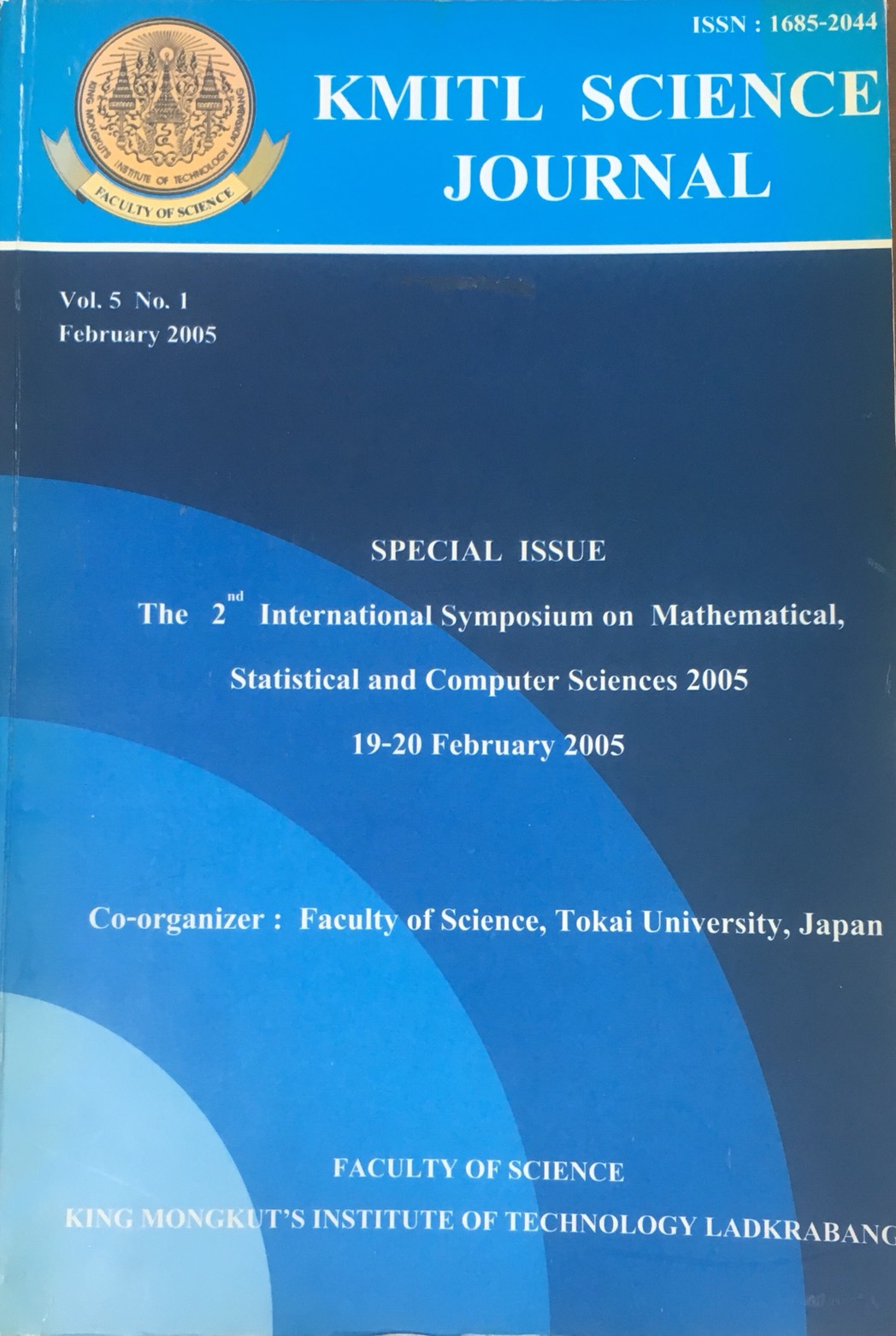Replacement Algorithms for the Multiple Complex-System Model
Main Article Content
Abstract
This research examines the NKC model, a model for studying behaviors of the multiple complex systems, in some certain aspects. In particular, various algorithms to be used in the replacement process of the NKC model are proposed. The NKC model incorporates the effects of interaction among components both in the same and different subsystems on the expected overall system performance. The objective of this combinatorial optimization model using the proposed replacement approaches is to achieve the highest level of such performance while at the same time, trying to reduce the expected number of replacements needed to arrive at that level. Through the use of computer simulations, it is shown how the different replacement algorithms affect these values of interest, that is, the expected overall system performance and the expected number of replacements.
Keywords: Replacement Algorithms, Complex Systems, Mathematical Modeling
Corresponding author: E-mail: klchartc@kmitl.ac.th
Article Details
Copyright Transfer Statement
The copyright of this article is transferred to Current Applied Science and Technology journal with effect if and when the article is accepted for publication. The copyright transfer covers the exclusive right to reproduce and distribute the article, including reprints, translations, photographic reproductions, electronic form (offline, online) or any other reproductions of similar nature.
The author warrants that this contribution is original and that he/she has full power to make this grant. The author signs for and accepts responsibility for releasing this material on behalf of any and all co-authors.
Here is the link for download: Copyright transfer form.pdf
References
[2] Derrida B., 1981. Random-Energy Model: An Exactly Solvable Model of Disordered Systems, Physical review B, 24, 2613-2620.
[3] Levinthal D. A., 1997. Adaptation on Rugged Landscapes, Management Science, 43, 934-950.
[4] Westhoff F. H., Yarbrough B. V., and Yarbrough R.M., 1996. Complexity, Organization, and Stuart Kauffman’s the Origins of Order, Journal of Economic Behavior and Organization, 29, 1-25.
[5] Leenawong C., 2003. On Modeling a Complex System with Interacting Components, KMITL Science Journal, 3, 107-115.
[6] Kauffman S. A. and Johnsen S. 1991. Convolution to the Edge of Chaos: Coupled Fitness Landscapes, Poised State, and Coevolutionary Avalanches, Journal of Theoretical Biology, 149, 476-505.
[7] Leenawong C. and Maneechai S., 2004. Combinatorial Optimization Model for Studying Multiple Complex Systems, Proceedings of the International Conference on Computing, Communications and Control Technologies, Austin, TX, pp. 88-96.
[8] Solow, D., Burnetas, A. N, Tsai, M., and Greenspan, N., 2000. On the Expected Performance of Systems with Complex Interactions among Components, Complex Systems, 12, 423-456.
[9] Solow D., Burnetas A., Tsai M., and Greenspan N.S., 1999. Understanding and Attenuating the Complexity Catastrophe in Kauffman’s NK Model of Genome Evolution, Complexity, 5, 1-21.
[10] Solow D., Vairaktarakis G., Piderit K. Sand Tsai M.C., 2002. Managerial Insights into the Effects of Interactions among Members of a Team, Management Science, 48, 1060-1073.


